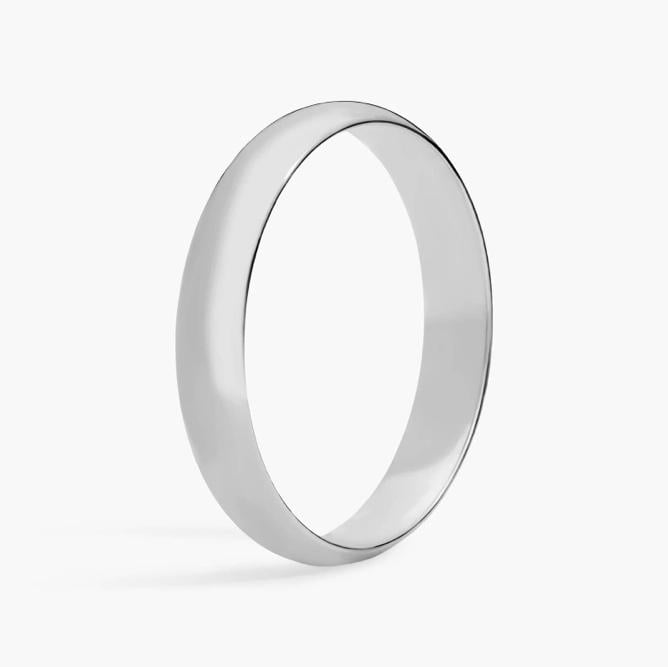14k vs 18k White Gold: How to Choose
2 Minute Read
What is the Difference Between 14k White Gold and 18k White Gold?
Based off an ancient system of weight, gold that is 100% pure is described as being 24 karats. Any karat weight that is less than 24k describes an alloy where the gold is mixed with other metals. Two of the most popular karats of gold are 18k and 14k. Gold that is 18k is 75% percent pure with 25% being other metals. Similarly, 14k gold is an alloy of 58.3% gold with 41.7% other metals.
Gold is naturally a bright yellow color. To achieve a white hue, the gold is mixed with white metals, such as silver, nickel, and palladium.
Characteristics of 14k White Gold
Have you ever seen a movie where someone bites a gold coin to check if it is real? People really used to do that because gold is soft enough that it dents, bends, and scratches more easily than many other metals. When you combine the soft gold with the harder metals that give it a white color, the resulting alloy has increased durability. This means that the surface of 14k white gold will be more resistant to scratches and dings than gold of higher purity.
Some factors to consider: The metals mixed with gold can oxidize which will give the item a dull appearance. To keep this from happening, 14k white gold jewelry may be plated with a thin layer of white rhodium which retains a whiter shine. Also, the added nickel in 14k gold can be enough to trigger an allergic reaction in people with especially sensitive skin.
at Blue Nile
Characteristics of 18k White Gold
Being 75% pure gold, 18k white gold is softer than is 14k cousin. It is also slightly more expensive. However, it has a brighter, whiter, and shinier appearance than lower karat white gold alloys that won't fade as a result of oxidation.
While it is true that 18k white gold is not as hard as 14k, we should say that the difference is not extreme. Also, the higher percentage of gold content means that it shouldn't cause skin discomfort or rashes.
at Blue Nile
Final Considerations
While 14k white gold may be slightly less costly initially, it may prove more expensive than its 18k counterpart over time. This can happen if you find that you need have the rhodium plating reapplied. The natural sheen of 18k white gold which does not require a coating won't need to be professionally repolished as often as 14k white gold.
Lastly, the difference in durability between 14k and 18k white gold is not something that most people will notice, but it can make a difference in jewelry that sees heavy use. For example, if you are a highly active individual and are purchasing a ring that you plan to wear frequently, 14k may be the best option.
Emily Frontiere
Emily Frontiere is a GIA Graduate Gemologist. She is particularly experienced working with estate/antique jewelry.
Related Articles
How to Buy a Lab-Grown Diamond in 2024
Whiteflash Review
Third Year Anniversary Gift Guide: Pearls
The Best Carat Weights for Heart Shaped Diamond Rings
Latest Articles
800 Years of Mogok: A Celebration in Tenuous Times
What is the Average Gemstone Faceting Yield?
Pyroxmangite Value, Price, and Jewelry Information
How to Identify Emerald Simulants and Synthetics
Never Stop Learning
When you join the IGS community, you get trusted diamond & gemstone information when you need it.
Get Gemology Insights
Get started with the International Gem Society’s free guide to gemstone identification. Join our weekly newsletter & get a free copy of the Gem ID Checklist!
